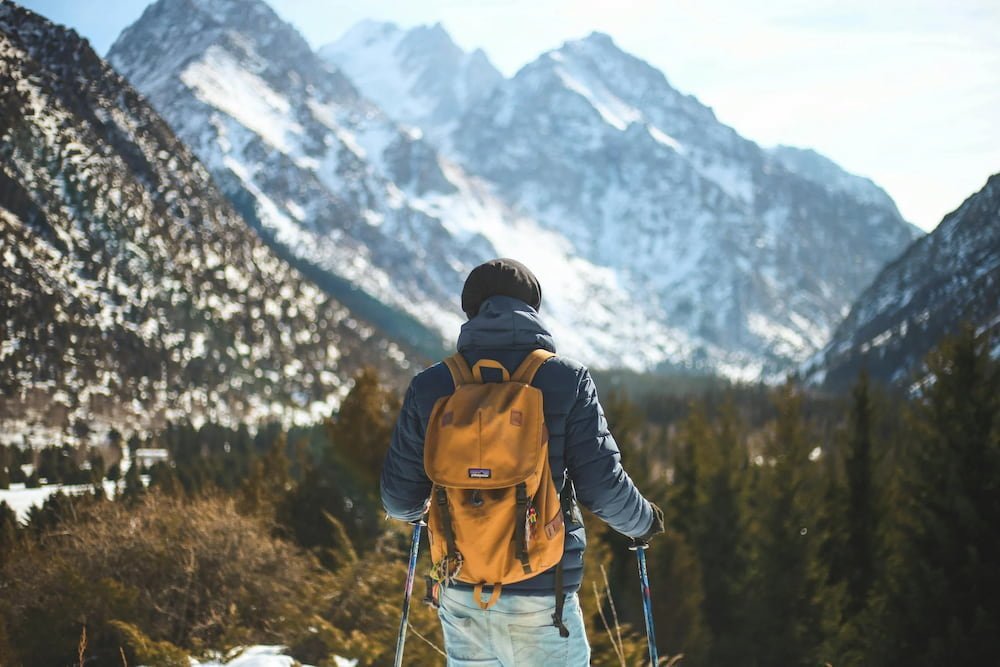Packing the right gear plays a crucial role in shaping your travel experience. Beyond convenience and efficiency, today’s travelers are increasingly mindful of the safety and sustainability of their travel essentials.
Recent studies, as reported by AP News, highlight concerns about PFAS, also called "forever chemicals," in consumer products. Alarming findings reveal their presence in items like travel gear, sparking concerns about potential risks. These substances have been linked to serious health issues, such as cancer and immune system disruptions.

A 2023 report revealed that up to 10,000 sites in England are contaminated with PFAS. The finding, reported by The Times, underscores the widespread nature of the issue.
Understanding the risks associated with PFAS is crucial for making informed choices. This guide will help you navigate safer options, ensuring your gear is good for your health and kinder to the planet. By choosing wisely, you can enjoy hassle-free, sustainable adventures without compromising on safety or performance.
Traveling has always been a scope to explore the world. However, it’s also a chance to make choices that reflect your values. Whether you’re backpacking through national parks or jet-setting across continents, your packing decisions impact more than just your suitcase.
In recent years, research has revealed alarming truths about the hidden dangers in some travel gear. For instance, PFAS are widely used in waterproof and nonstick coatings for outdoor equipment, cookware, and rain jackets. Its use has contributed to the PFAS lawsuit, highlighting concerns over their environmental and health impacts.
These chemicals don’t break down easily and have been linked to serious health problems like liver damage and hormonal imbalances. According to the European Environmental Agency, PFAS contamination is observed in every corner of the globe, from drinking water to soil.
Sustainable travel gear is no longer a niche market; it’s a growing necessity. Start by looking for products made from renewable materials like organic cotton, recycled polyester, or bamboo, says the Travel Dude. These materials reduce environmental impact and help avoid the threat posed by toxic chemicals.
Reusable items are another excellent way to cut waste and travel responsibly. Stainless steel water bottles, silicone snack bags, and refillable toiletries are practical, durable options. They reduce single-use plastics. Besides, they also save you money in the long run.
When shopping, certifications can guide your choices. Labels such as OEKO-TEX Standard 100 or Global Organic Textile Standard (GOTS) ensure products meet rigorous environmental and safety standards.
PFAS are widely used in travel products because they repel water and resist stains, making them appear highly convenient. Yet, this convenience comes with significant drawbacks. The same durability that makes PFAS attractive to manufacturers makes them dangerous to humans and the environment. Once released, PFAS persist indefinitely, accumulating in water sources and wildlife.
In the travel industry, PFAS are found in raincoats, tents, and nonstick cookware. The EHN reveals that many outdoor gear brands still use PFAS in their products. However, some manufacturers have pledged to phase them out by 2025. They have committed to eliminating PFAS from their supply chains, signaling a positive shift toward safer options.
Switching to non-toxic alternatives doesn’t have to be complicated. For cookware, stainless steel or cast iron are excellent replacements for PFAS-coated nonstick pans. In rain gear, untreated materials like waxed cotton or PFAS-free membranes provide water resistance without harmful chemicals.
Tents and sleeping bags are also areas to be cautious about. Researching your purchases and choosing products with clear labels can go a long way toward ensuring your safety. It’s worth prioritizing quality over quantity. A durable, well-made item reduces waste and also minimizes exposure to harmful substances.
Packing smart isn’t just about the products you buy; it’s about how you use them. Pack only what you truly need, and think creatively about how to maximize space and efficiency. Opt for solid toiletries like toothpaste tablets and shampoo bars to reduce your reliance on plastic. Compression bags are a great way to make the most of limited luggage space while keeping your belongings organized.
Choosing second-hand gear can also contribute to a sustainable travel routine. Many outdoor enthusiasts sell used items that are as functional as new ones but come without the added environmental cost.
The growing awareness of PFAS-related risks has sparked legal action, pushing manufacturers to reconsider their practices. Major lawsuits were filed against companies accused of PFAS contamination in water supplies. Hence, it resulted in multi-million dollar settlements, reports TorHoerman Law. These lawsuits are not just about accountability; they’re reshaping the industry by creating pressure to develop safer alternatives.
For travelers, this means that more PFAS-free products are becoming available, allowing you to make informed and responsible choices.
Embracing sustainable travel involves deliberate choices that minimize environmental impact and support local communities. Opt for eco-friendly accommodations that implement energy-efficient practices and waste reduction measures. Carry reusable items like water bottles and shopping bags to decrease single-use plastic consumption. Additionally, respect natural habitats by following designated trails and avoiding activities that harm wildlife.
Many companies now offer water-resistant clothing, backpacks, and outdoor equipment that avoid harmful chemicals like PFAS. These options often use alternative coatings that maintain durability and functionality without compromising safety. Consider shopping second-hand or during sales to find high-quality items without breaking the bank.
Begin by scrutinizing the product's ingredient list; familiarize yourself with common harmful substances and verify their absence. Utilize health apps that scan product barcodes to assess safety ratings, providing immediate clarity. Additionally, seek out products with third-party certifications from NSF or US Pharmacopeia, as these endorsements indicate compliance with safety standards.
Packing for your next adventure is more than a checklist—it’s an opportunity to prioritize safety, sustainability, and thoughtful consumption. By choosing non-toxic and eco-friendly gear, you can travel with confidence and ensure personal safety. This choice also helps protect the planet, allowing you to contribute to a healthier environment.
Travel smart, stay safe, and make every journey a step toward a healthier world.
